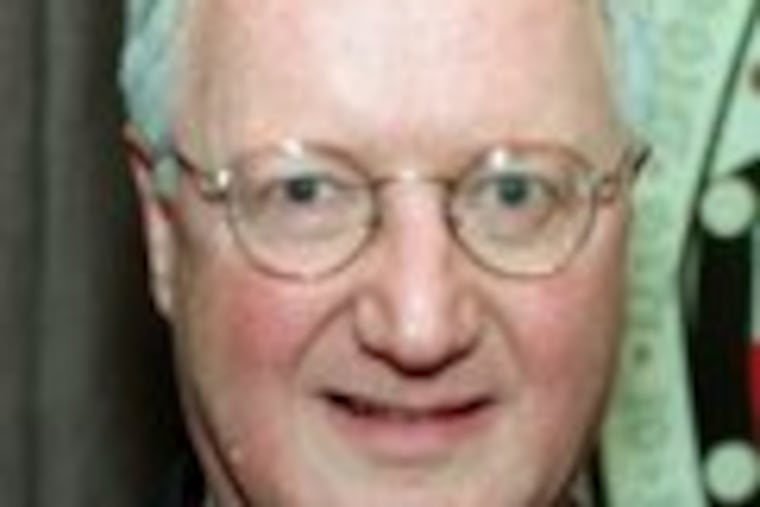Abuse victim speaks out at Bennison trial
Episcopal Bishop Charles E. Bennison Jr.'s church trial on the ground that he long ago concealed his brother's sexual abuse of a teenage girl ended its first day with the victim recounting how she had hoped Bennison would report the abuse to her parents and put an end to it.

Episcopal Bishop Charles E. Bennison Jr.'s church trial on the ground that he long ago concealed his brother's sexual abuse of a teenage girl ended its first day with the victim recounting how she had hoped Bennison would report the abuse to her parents and put an end to it.
"I wanted out," the woman, now 50, told the special Court for the Trial of a Bishop yesterday in Center City. "I wanted someone to help me."
But Bennison, who was then rector of her parish in Upland, Calif., remained silent, she said, adding that there was "no doubt in my mind he knew" that his brother, John Bennison, the church's youth minister, was having sex with her.
She described how twice, when she was 15, Charles Bennison had walked in on them and found them disheveled and breathless, with John Bennison visibly aroused on one occasion.
Both times, she said, Charles Bennison appeared flustered and embarrassed, but "turned around and walked out," and never questioned her about it or told her parents.
Bennison, who has served as bishop of the five-county Diocese of Pennsylvania for 10 years, was suspended in October after a special church committee concluded that he had inappropriately protected his brother to further his career.
In 2006, John Bennison was forced to resign as rector of his parish when a San Francsico TV station reported his abuse of the girl, which began when she was 14 or 15 and lasted nearly five years.
"I think I was hoping he'd tell my parents," the victim, who is using her childhood name of Martha Alexis in the trial, said of Charles Bennison. She uses neither name now.
She said John Bennison began "grooming" her for sex when she was 14, soon after he arrived at his brother's parish.
The affair began with hugs and back rubs and fondling. Over time, she said, it devolved into "unspeakable perversions" that she felt powerless to stop until fall 1976, when she was a freshman in college.
"Did Charles Bennison ever ask if you were OK, if you needed help?" asked church attorney Larry White, the lead prosecutor.
"No," she said.
At issue is when Charles Bennison learned of the abuse.
The nine-member panel of judges will decide whether he should be permanently removed from all clerical office in the Episcopal Church or allowed to return as bishop of the diocese.
Bennison, 64, can appeal their decision, and has said he will return to his duties if vindicated. At least six of the judges must vote him guilty or the presentment is nullified. They will have 30 days to issue a verdict.
The bishop and his lawyers contend that he did not learn of the abuse until Martha Alexis was about 17 and - like most clergy of the 1970s - had no training in what to do in such a situation.
Charles Bennison's attorney, James A. Pabarue, never defended the abuse or seriously challenged the church's contention that Bennison could have handled the matter better.
Instead, his strategy appeared to be aimed at why the church was bringing charges 35 years after the fact.
He noted repeatedly that at least five Episcopal bishops, including former Presiding Bishop Edmund Brown, who consecrated Bennison in 1996, knew of the abuse and of Bennison's failure to intervene.
Pabarue, a Center City lawyer who specializes in employment law, showed the victim's mother, June Alexis, letters that she wrote to the bishop of Los Angeles in 1993.
"You disclosed everything you know about Charles Bennison's knowledge?" he asked.
Pabarue then recited the names of three bishops and two priests and asked whether they knew about the affair at least 15 years ago.
"Yes," she said.
Pabarue said in an interview last week that the charges against Charles Bennison were "half-truths" concocted by members of the 55,000-member diocese, including the standing committee, who want his ouster.
The diocesan chancellor, or chief legal officer, has denied the standing committee has any involvement.
June Alexis said she was stunned in 1978 when her daughter finally divulged the abuse, but that she also felt "disbelief, shock and anger" when Charles Bennison - who was a close family friend - told her he had known about the abuse but had kept silent.
In opening statements White told the judges that, as rector, Charles Bennison "had an obligation to recognize" his brother's adultery and "aberrational sexual appetites."
White also argued that Charles Bennison should have informed the diocesan search committee of the abuse and his handling of it when he applied for the bishop's position here in 1996.